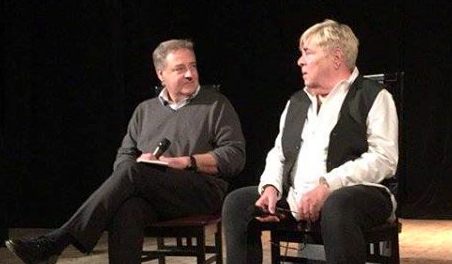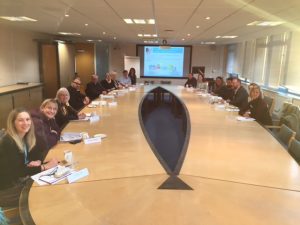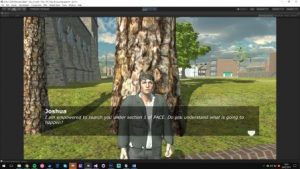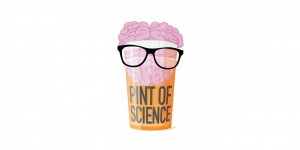You are cordially invited to the next Faculty of Health and Social Science (FHSS) and Ageing and Dementia Research Centre (ADRC) joint seminar:
Using Technologies for Safer Walking: A Participative Inquiry
Dr Petula (Tula) Brannelly
Senior Research Fellow, University of Southampton
21st June 2017 1-1.50pm
R301, Royal London House, Lansdowne Campus
This research project examines the use of GPS and other technologies that people with dementia and their families use to help with wayfinding and location. In this presentation, discussion will focus on data from police officers involved in missing person investigations, people with dementia and their families using the technologies; and the experiences of people using the technologies gathered using an ethnographic go-along interview approach, where a researcher goes out walking with the person using the technology. Tula will draw attention to the ethics of care approach to technology use for people with dementia and their families. Project website www.southampton.ac.uk/dementia-rights
All staff and students welcome.
Biography
Dr Brannelly joined the University of Southampton as a Senior Research Fellow in November 2015 to work with Ruth Bartlett on the Using GPS with Care project funded by the Alzheimer’s Society. It is an interdisciplinary participatory project centralising the experiences of people with dementia and their families. From 2006 – 2015 Tula was a Senior Lecturer in Mental Health at Massey University in New Zealand, and before that a Research Fellow at the University of Birmingham. Tula completed her PhD, ‘Citizenship and care for people with dementia’ at Birmingham in 2004. Prior to that Tula worked in mental health nursing roles with older people.
Tula’s interest in the ethics of care has sustained relationships with colleagues from the Universities of Brighton, Professor Marian Barnes and Dr Lizzie Ward, and Birmingham, Dr Nicki Ward, resulting in an edited collection to be published in October 2015, Ethics of Care, Critical Advances in International Perspectives, Policy Press. Whilst at Massey University in New Zealand, citizenship shaped by impacts of colonisation led Tula to consider ethics of care and collective cultures and to work with Maori. Tula has researched and published with Dr Amohia Boulton to understand more about the place of care in indigenous culture. PhD supervision has included Dr Stacey Wilson (Crisis intervention, Dean’s List) and Dr Sione Vaka (Tongan constructions of mental health; Sione is the first Tongan mental health nurse with a PhD, Health Research Council funded). Tula has also researched care workers and ethics at a dementia unit, completed a qualitative study of mental health service user activist priorities for change in mental health services (in NZ and UK), and evaluated the impact of antidiscrimination training on student nurses.











 The call for participants for the 2017 ESRC Festival of Social Sciences will be opening on 29th March. The festival this year is taking place from the 4th to the 11th of November with events taking place across the BU Campus and in the local area. We will be looking for applications from social sciences researchers to run workshops/exhibitions/lectures/activities (we’re open to ideas) open for attendance for the wider public.
The call for participants for the 2017 ESRC Festival of Social Sciences will be opening on 29th March. The festival this year is taking place from the 4th to the 11th of November with events taking place across the BU Campus and in the local area. We will be looking for applications from social sciences researchers to run workshops/exhibitions/lectures/activities (we’re open to ideas) open for attendance for the wider public. Share your research over a pint!
Share your research over a pint!











 Read and sign up to BU’s Policy Influence Digest
Read and sign up to BU’s Policy Influence Digest Upcoming opportunities for PGRs – collaborate externally
Upcoming opportunities for PGRs – collaborate externally BU involved in new MRF dissemination grant
BU involved in new MRF dissemination grant New COVID-19 publication
New COVID-19 publication MSCA Postdoctoral Fellowships 2024
MSCA Postdoctoral Fellowships 2024 Horizon Europe News – December 2023
Horizon Europe News – December 2023